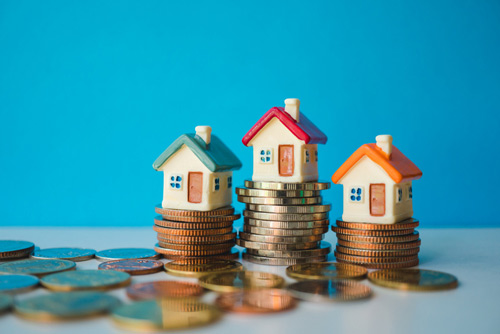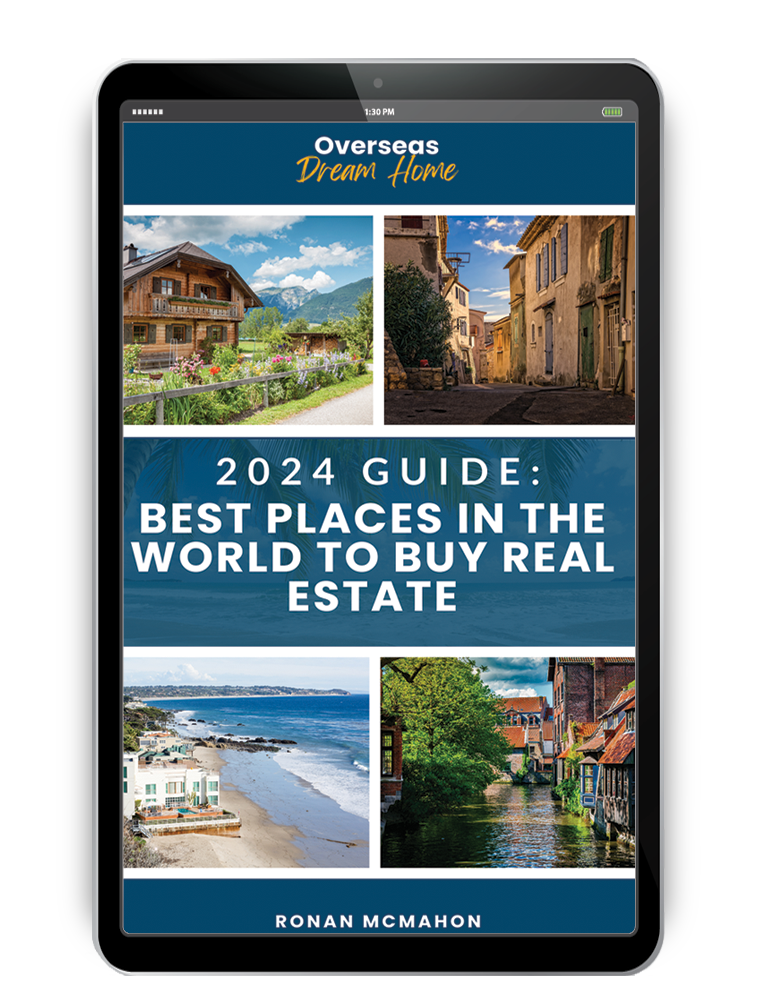I became an international real estate investor lured by the promise of travel, adventure, and profit.
These days, feeling pretty relaxed about life has been a big additional benefit. When I open a newspaper, check social media, or turn on the TV news I am happier than ever that I own a portfolio of income-producing properties around the world.
I own real, tangible assets. I am sitting on huge gains in value thanks to having bought at the right price in the right places…stunning places I can spend time.
Real estate is not subject to the same rapid and wild fluctuations as other asset classes. It can make you very rich. You can live in it…it can generate income.
Most importantly, I understand it. I once owned stocks. But I realized I didn’t know what was going on in the boardroom. I am an outsider. And I didn’t want to play that game. So I sold any stocks I owned long ago and have owned no stocks since.
Now, at a time when the money-printing machines of the world are in overdrive, I’m investing more money in real estate than ever before…here are nine reasons why.
1. Real estate is an illiquid asset. That’s why some folks don’t like real estate. I love real estate’s liquidity, or lack thereof. The crowd surges at the top of the bubble, so you have a lot of buyers when it’s too expensive. That’s when you want to sell.
2. Supply is relatively fixed. Unlike dollars, you can’t print 2 trillion homes overnight. Supply is limited by a complex mix of land, permits, machinery, materials, and skilled entrepreneurs.
In some places supply can be relatively easily added—think Vegas rolling out into the desert. In others it’s fixed—think a historic apartment in Paris. I like to buy in places with supply constraints and growing demand. You don’t need a complex equation to figure out what happens when more people want a scarce thing: the price goes up. As the price goes up people start panicking that it will go up more, so they feel they need to act, and someone offers you more money than the property is worth and you sell.

In some of Europe’s historic cities, supply is constrained despite growing demand.
3. Real estate is a tangible asset and inherently valuable. Folks will always need homes to live in, land to farm, restaurants to eat in, etc.
4. It can produce income. You don’t need a PhD in financial reporting to understand the income stream from real estate. It’s basic math. (You do need to make sure you properly count costs when comparing opportunities.)
5. History tells us it’s the best investment. Even when the housing market takes a short-term dip, history has shown that it always recovers and continues on its path of appreciation, outpacing inflation and, when you buy in the right place, rocketing to new levels. A team of expert economists from the Federal Reserve Bank of San Francisco, the University of Bonn, the Deutsche Bundesbank, and the University of California recently studied the return of four major investments—Treasury bills, bonds, equities, and real estate—from 1870 to 2015 (that’s 150 years of data crunching) and discovered that real estate came out on top.
Essentially, this means that with real estate you can have the benefits of stock market appreciation, while protecting yourself from the same levels of volatility.
This is particularly important if you’re close to retirement. While the stock market generally does recover from crashes, it takes time. Time you might not be able to afford if you’re planning to start drawing from your savings soon.
Those big data studies are interesting. But they miss the real reason all my money is in real estate and cash I’m waiting to allocate to real estate plays.
6. It’s easier to pick winners. You are probably familiar with the various studies that have shown monkeys throwing darts are as good at stock picking as trained human professionals. That’s not the case with real estate. For one big reason…our competition is emotional. We buy based on numbers, but the person we might sell on to is buying their dream home. It’s not a fair fight. They are emotionally invested.
7. You can buy with leverage. Real estate also has the huge benefit that we can buy with leverage, or other people’s money. If you wanted to invest in a condo for $200,000, you could do it with as little as $40,000 down, using a mortgage or financing to cover the remaining 80%. And you’d still get to keep 100% of the profits from capital gains.
Rent out your home and the income can cover the entire mortgage payments, and make you plenty more besides…essentially giving you free real estate.
And once you pay off your mortgage and build equity, you can use it as leverage to acquire additional rental properties and increase your cash flow by multiples. In today’s market, with interest rates lower than ever, this is a major benefit to have. We are in an unprecedented zero-interest-rate environment in the developed world. We can use incredibly cheap money to buy high-yielding undervalued real estate.
8. Real estate is the most versatile asset you can own. It offers so many different ways to maintain and grow wealth. You can rent short-term or long-term. Use it as leverage to secure a loan or refinance and free up money. Sit and hold and watch it appreciate in value…or buy cheap and flip it for a profit. You might even decide to live in it yourself, or use it as your winter getaway. There are countless possibilities.
9. When you invest in real estate you diversify your assets. When you invest in overseas real estate you go a step further and reduce your exposure to your home market. If things hit a speed bump in the U.S., real estate and the stock market fall. But if you find the right place and the right deal, you’ll still be making money.
I look to invest in places where I can see a decade plus of upward growth. Most U.S. and Canadian markets are highly leveraged, expensive relative to incomes, and very susceptible to interest rates rising or employment falling. I’ve watched over the last two or three years as little-guy property investment and speculation has come back in vogue.





